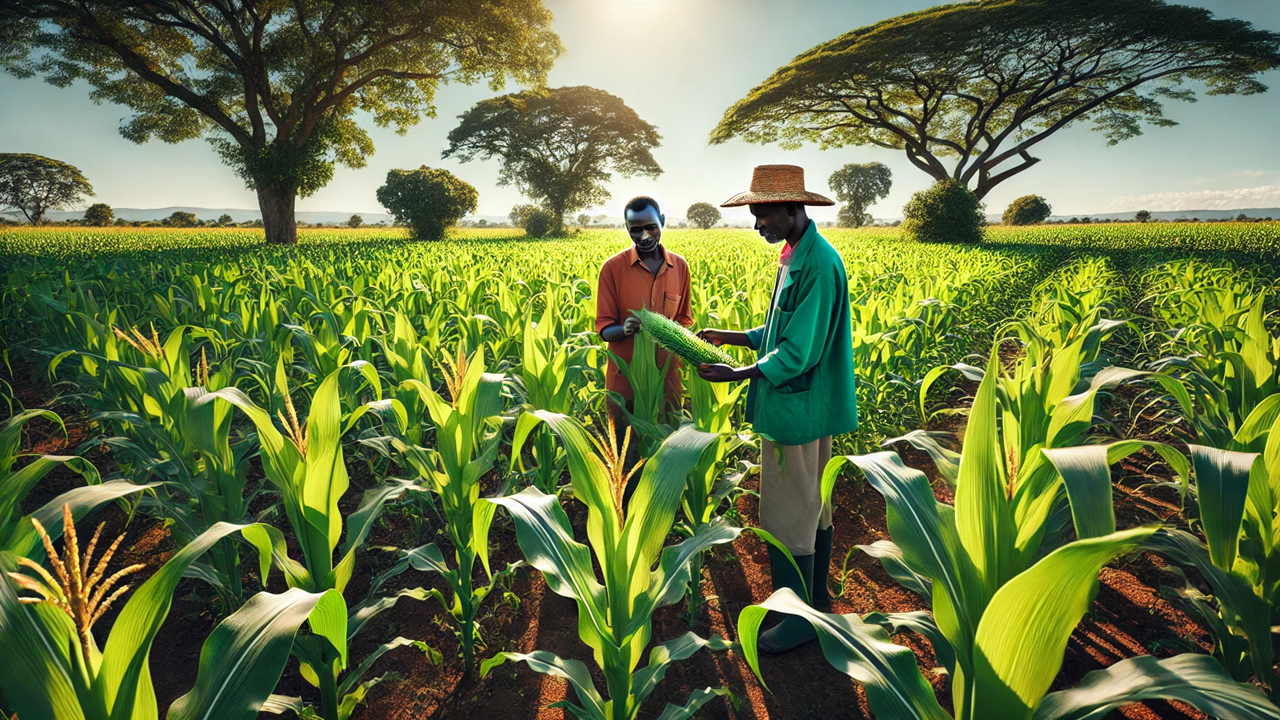IFAD and Rwanda Launch FARM P3 Pilot to Boost Maize, Soybean Value Chains
The initiative, focusing on maize and soybean value chains, aims to strengthen food systems, reduce post-harvest losses, and improve incomes for smallholder farmers.

- Country:
- Rwanda
The International Fund for Agricultural Development (IFAD), in partnership with the Rwanda Agriculture Board (RAB), cooperatives, private sector stakeholders, and development organizations including IDH, has launched the pilot phase of the Food and Agriculture Resilience Mission Pillar 3 (FARM P3) in Rwanda. The initiative, focusing on maize and soybean value chains, aims to strengthen food systems, reduce post-harvest losses, and improve incomes for smallholder farmers.
Improving Livelihoods for Farmers in Kayonza
The FARM P3 pilot will directly benefit up to 4,000 smallholder farmers in Kayonza District, providing them with new opportunities to strengthen production and market access. With a budget of US$1.23 million, the programme complements the larger Kayonza Irrigation and Integrated Watershed Management Project – Phase II (KIIWP2), which runs from 2021 to 2028 and supports more than 40,000 rural households in achieving food security and climate resilience.
“Through FARM P3, cooperatives, small and medium enterprises (SMEs) and banks will work together in a more structured way to foster win-win partnerships across key value chains,” said Dagmawi Habte-Selassie, IFAD Country Director. “The focus is not only on training and equipment, but also on building sustainable business relationships that ensure smallholder farmers can sell more, waste less, and increase their incomes.”
Tackling Post-Harvest Losses in Maize
A central objective of the pilot is to address maize post-harvest losses, which currently stand at around 13.8%. By co-investing in drying shelters for cooperatives and expanding access to mobile mechanical dryers for SMEs, FARM P3 will help farmers reduce grain moisture, meet quality standards demanded by private sector buyers, and secure better prices for their harvests.
For buyers, this will mean access to higher-quality maize with reduced sourcing risks, while for farmers it promises improved incomes and stronger, long-term market relationships.
Soybean: A Crop for Future Growth
Alongside maize, the pilot is laying the groundwork for commercial soybean sourcing to meet increasing private-sector demand. Activities include establishing demonstration plots, conducting inclusive business analyses, and investing in farm-level equipment.
According to Wangari Nduta, Project Manager of Business Analytics at IDH, inclusive business analyses suggest that with Good Agricultural Practices (GAP) and reliable market linkages, soybean farming could raise smallholder net incomes by up to 2.3 times over five years. Notably, soybeans already outperform traditional beans on average in terms of profitability, positioning them as a strong driver of rural income diversification.
Partnership for Resilient Food Systems
The initiative is part of Pillar 3 of the global FARM initiative, launched by France under the EU Council Presidency, which focuses on accelerating the transition to sustainable and resilient food systems, particularly in Africa. FARM P3 is already active in Senegal, Sierra Leone, and Zimbabwe, adapting to local contexts and value chains.
In Rwanda, the project aligns with the country’s PSTA 5 strategy, which emphasizes resilient, inclusive, and market-driven value chains.
“By reducing post-harvest losses and fostering reliable market linkages, FARM P3 will contribute to advancing PSTA 5 priorities,” said Solange Uwituze, Acting Director General of RAB. “It will empower smallholders while creating new investment opportunities for private sector actors.”
Long-Term Vision
Beyond training and infrastructure, FARM P3 is designed to foster systemic change by aligning farmer organizations, buyers, and service providers around shared goals. By linking nutrition, agriculture, and markets, the initiative will help improve household food security while also creating commercial opportunities that benefit all players along the value chain.
As Rwanda continues its push for agricultural modernization and resilience, FARM P3 is expected to become a model for public-private collaboration in building sustainable food systems across Africa.










